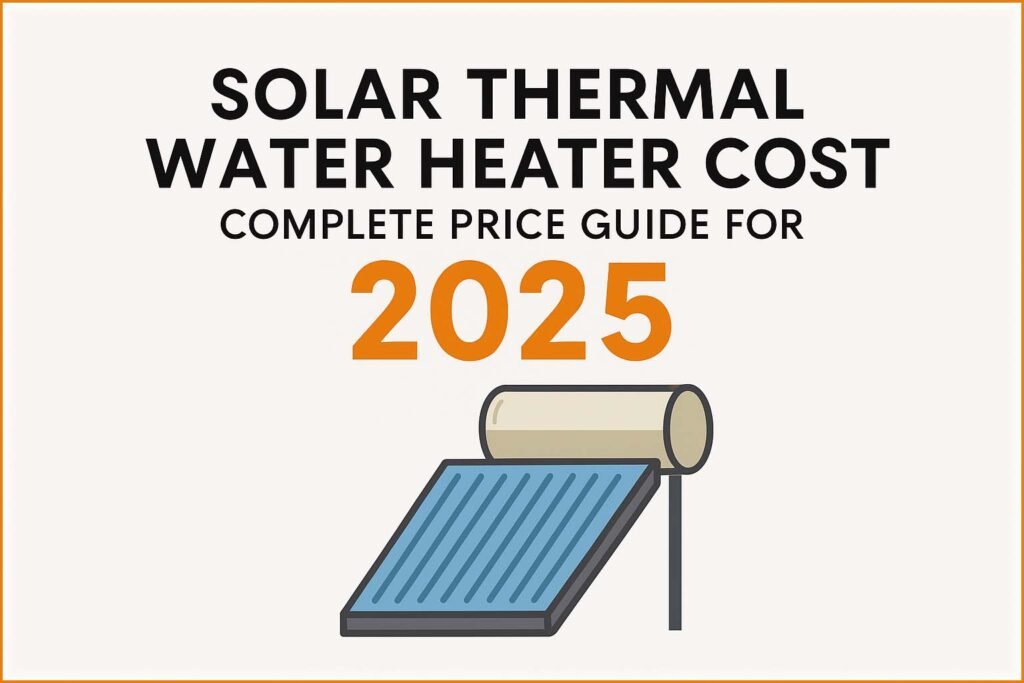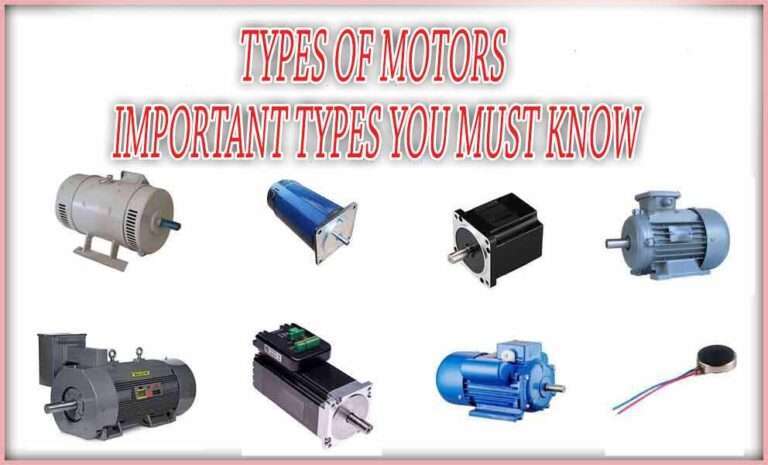Solar Thermal Water Heater Cost – Complete Price Guide for 2025
Solar thermal water heating systems are becoming one of the smartest ways to cut down energy bills and reduce reliance on fossil fuels. They use sunlight to heat water, offering a sustainable, long-term alternative to electric or gas-powered heaters. But before making the switch, one question most homeowners ask is: “What is the actual solar thermal water heater cost?”
The cost of a solar thermal water heater depends on several factors — system type, collector size, installation complexity, and regional climate conditions. Whether you’re planning for a residential setup or a commercial hot water solution, understanding the upfront and long-term costs will help you make a confident, informed decision.
Table of Contents
Table of Contents

In this article, we’ll break down the solar thermal water heater cost, its influencing factors, available incentives, and how it compares with conventional heating systems. You’ll also learn about maintenance requirements and long-term savings potential.
Key Takeaways
- Average solar thermal water heater cost: $3,000–$8,000 for a complete installation.
- Annual energy savings: Between 50–80% on water heating bills.
- Payback period: Typically 5–8 years, depending on local energy prices and incentives.
- Government rebates and tax credits can reduce costs by 20–30%.
- Durability: Most systems last over 20 years with minimal maintenance.
Understanding Solar Thermal Water Heater Cost
The solar thermal water heater cost can vary widely depending on the system design and your hot water needs. On average, homeowners spend between $3,000 and $8,000, including equipment and professional installation.
Know More about Solar Water Heater Working Principle – Complete Guide to How It Works
For small households with moderate usage, a simple flat plate system can be enough, while larger families or commercial setups might need evacuated tube collectors or even solar-assisted heat pump systems. The table below shows an approximate cost range by system type.
| Type of Solar Thermal System | Typical Capacity (Liters) | Average Cost (USD) | Ideal For |
|---|---|---|---|
| Flat Plate Collector System | 150–300 | $3,000–$5,000 | Homes with mild climates |
| Evacuated Tube Collector System | 200–500 | $4,500–$7,000 | Cold or cloudy regions |
| Thermosiphon System | 150–250 | $2,500–$4,000 | Small residential users |
| Pumped (Active) System | 300–600 | $5,000–$8,000 | Large households & commercial setups |
These estimates include collector panels, storage tanks, heat exchangers, control units, and installation labor. If you live in a region with generous solar incentives, your effective cost may drop significantly.
Factors Affecting Solar Thermal Water Heater Cost
1. Type of Solar Collector
The type of collector used has the largest impact on cost.
- Flat plate collectors are affordable and work best in sunny climates.
- Evacuated tube collectors offer higher efficiency in colder or cloudy regions but come with a higher price tag.
- Hybrid or advanced systems, which use pumps and smart controllers, can boost performance but add to installation expenses.
Know More about Top Solar Inverters for Home Use: Engineering Comparison & Cost Guide 2025
2. Storage Tank Size
The tank size depends on daily hot water consumption. A 200-liter tank is typical for a family of four. Larger tanks increase system price but allow more energy storage, reducing the need for backup heating.
3. Installation Costs
Professional installation can represent 15–25% of total system cost. Roof mounting, plumbing integration, and electrical connections all require skilled labor. Complex roof structures or multi-story buildings may cost more.
4. Climate and Location
If you live in an area with consistent sunlight, such as southern states or desert climates, you’ll need fewer collectors for the same performance. Cloudier or colder locations require more collectors and better insulation, increasing total cost.
5. Incentives and Rebates
Federal and state programs, such as renewable energy tax credits or local solar rebates, can reduce upfront cost by 20–30%. Always check with your local energy authority or installer for available benefits before purchasing.
Solar Thermal Water Heater Cost vs. Electric and Gas Systems
Let’s compare the long-term costs of a solar thermal system against conventional water heating options.
| System Type | Initial Cost (USD) | Annual Operating Cost | Average Lifespan | Total 20-Year Cost |
|---|---|---|---|---|
| Electric Water Heater | $500–$1,000 | $450–$600 | 10 years | $9,000–$13,000 |
| Gas Water Heater | $800–$1,500 | $350–$500 | 10 years | $8,000–$11,000 |
| Solar Thermal Water Heater | $3,000–$8,000 | $50–$100 | 20 years | $4,000–$9,000 |
Although solar thermal systems have higher upfront costs, they quickly pay for themselves through energy savings and minimal running expenses. Over a 20-year period, the solar thermal water heater cost becomes far lower than traditional heating systems.
Use our online tool Wire Size Calculator for Solar Panels – Avoid Power Loss in Off-Grid and Hybrid Systems
Maintenance and Running Costs
Solar water heating systems are low-maintenance. Most require simple annual inspections and occasional cleaning of collector surfaces to remove dust or debris. A typical annual maintenance cost ranges between $50 and $150, depending on system complexity.
- Pump systems might need minor servicing every few years.
- Thermosiphon systems have no moving parts, making them nearly maintenance-free.
- Antifreeze fluid (in closed-loop systems) should be replaced every 3–5 years to maintain efficiency.
These small maintenance steps ensure reliable performance for 20 years or more.
How to Estimate Your Solar Thermal Water Heater Cost
To estimate your own solar thermal water heater cost, you need to consider three major factors:
- Hot Water Demand:
Calculate your average daily hot water usage. For a family of four, it’s around 150–250 liters per day. - System Sizing:
A solar collector area of 2–4 square meters is usually enough for a medium-sized family. Larger households might need 5–6 square meters. - Cost Formula:
A simplified cost estimation formula:
Total Cost = (Collector Area × Cost per m²) + Installation + Storage Tank + Controls
Example:- Collector: 4 m² × $700 = $2,800
- Tank & Controls: $1,500
- Installation: $700
Total Estimated Cost = $5,000
This gives you a realistic range to plan your budget before contacting an installer.
Know More about Floating Solar Panel Systems Design & Cost Analysis
Return on Investment (ROI)
The real value of a solar thermal system lies in its energy savings. On average, households save 50–80% of their annual water heating costs.
If your current energy bill for water heating is $500 per year, switching to solar could save $300–$400 annually. Over 10 years, that’s $3,000–$4,000 in savings, not including potential incentives or carbon reduction benefits.
When you combine savings with long system life and minimal maintenance, the solar thermal water heater cost becomes an investment that pays itself back within 5–8 years, depending on your energy rates and sunlight availability.
Incentives, Tax Credits, and Grants
Many governments offer financial incentives to promote renewable energy systems. In the United States, the Federal Investment Tax Credit (ITC) allows homeowners to claim up to 30% of system costs as a tax deduction.
Other countries and regions have their own programs:
- UK: Renewable Heat Incentive (RHI) provides quarterly payments based on energy produced.
- Australia: Small-scale Technology Certificates (STCs) can offset installation costs.
- Canada: Provincial rebate programs encourage renewable energy use in residential buildings.
These incentives make solar water heating more accessible and significantly reduce the solar thermal water heater cost barrier.
Is a Solar Thermal Water Heater Worth It?
For most households, the answer is yes. If you live in a region with good sunlight exposure, a solar thermal water heater can deliver hot water efficiently throughout the year. Even in colder climates, systems with evacuated tubes or hybrid setups can maintain reliable performance.
Here are the benefits summarized:
- Substantial long-term savings on energy bills.
- Low operating costs with minimal maintenance.
- Lower carbon footprint and sustainable energy use.
- Potential for higher property value due to energy efficiency.
While the initial solar thermal water heater cost may seem high, the long-term economic and environmental benefits far outweigh the upfront expense.
Know More about Off-Grid Solar System Design Guide for Remote Areas
Conclusion – Making the Right Decision
The solar thermal water heater cost varies by system type, installation complexity, and household size, but typically ranges between $3,000 and $8,000. Despite the higher initial cost, it’s a smart, long-term investment that reduces utility bills and carbon emissions.
By understanding the cost components, available incentives, and expected savings, you can confidently evaluate whether a solar thermal water heater fits your energy goals. With proper installation and maintenance, you’ll enjoy clean, renewable hot water for decades — while your savings continue to grow year after year.
Follow Us on Social:
Subscribe our Newsletter on Electrical Insights for latest updates from Electrical Engineering Hub
#SolarThermalWaterHeaterCost, #SolarWaterHeater, #SolarEnergy, #RenewableEnergy, #SolarHeatingSystem, #SolarPowerForHome, #WaterHeatingSolutions, #EcoFriendlyLiving, #EnergySavings, #GreenEnergy, #SolarInstallation, #SustainableHome, #SolarHotWater, #SolarTechnology, #CleanEnergy


